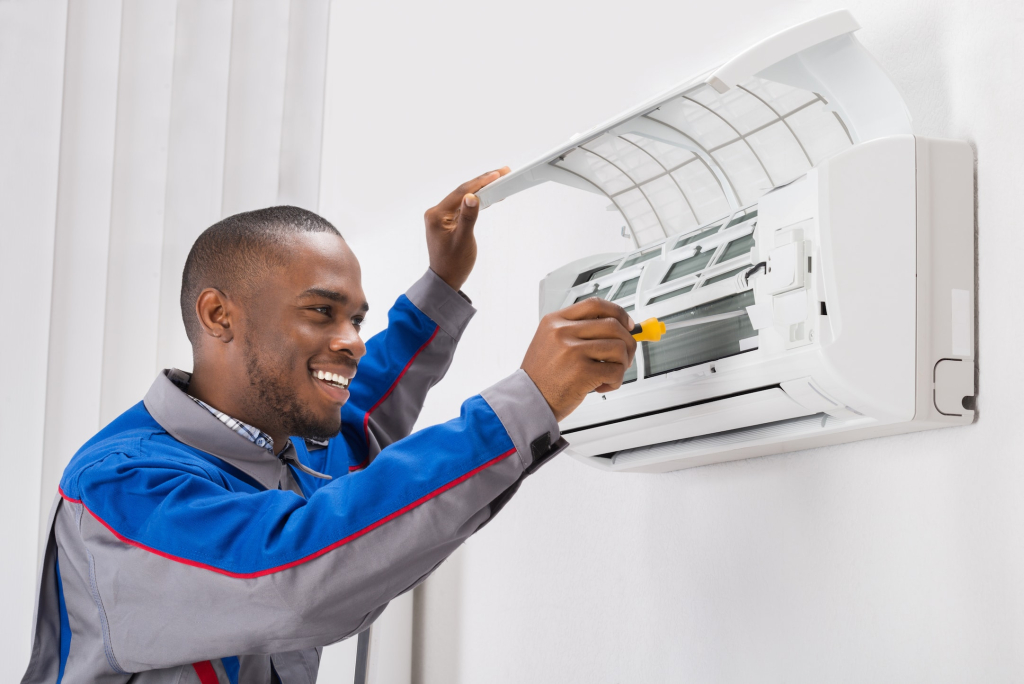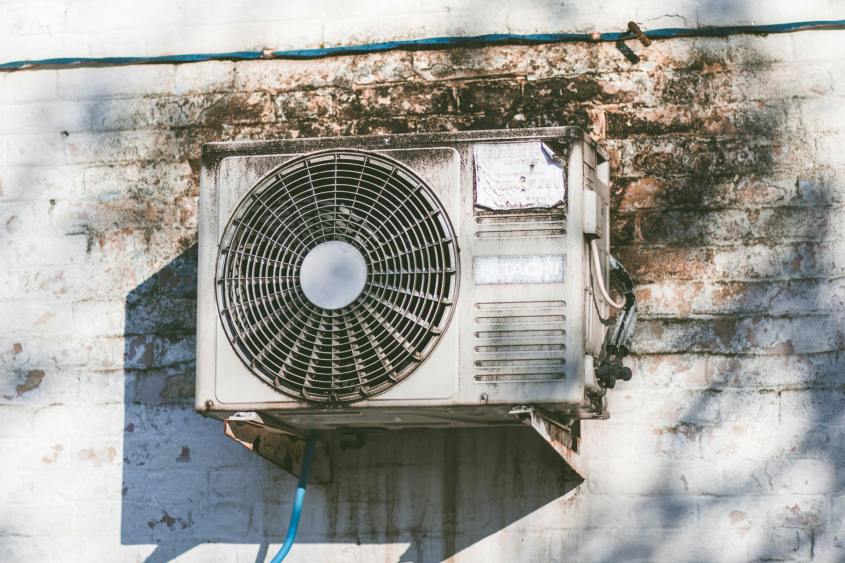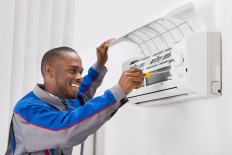Proper HVAC maintenance is essential for homeowners to ensure the optimal functioning of their heating, ventilation, and air conditioning (HVAC) systems. Regular maintenance not only helps to keep your home comfortable but also prevents costly repairs down the line. In this section, we will explore the significance of HVAC maintenance by understanding the role of HVAC systems and why regular maintenance is crucial.
Importance of HVAC Maintenance
Understanding the Role of HVAC Systems
HVAC systems play a vital role in maintaining a comfortable living environment inside your home. They are responsible for regulating temperature, humidity, and air quality. During the colder months, the heating component of the system keeps your home warm and cozy. Conversely, in hot weather, the air conditioning component cools your home, providing relief from the sweltering heat.
Moreover, HVAC systems also help to improve indoor air quality by filtering out pollutants and circulating fresh air. This is particularly important for individuals with respiratory issues or allergies. By ensuring proper airflow and ventilation, HVAC systems contribute to a healthy and comfortable living space.
Why Regular Maintenance is Crucial
Regular HVAC maintenance is crucial for several reasons. First and foremost, it helps to identify and address any potential issues before they escalate into major problems. During routine maintenance, HVAC technicians can inspect the system, clean or replace filters, check electrical connections, and lubricate moving parts. This proactive approach allows them to catch minor issues early on, preventing them from developing into costly repairs or system failures.
Furthermore, regular maintenance helps to maintain the energy efficiency of your HVAC system. Over time, dust, dirt, and debris can accumulate in the system, obstructing airflow and reducing efficiency. By cleaning and maintaining the system, you can ensure that it operates at peak performance, saving energy and lowering utility bills.
Additionally, regular maintenance extends the lifespan of your HVAC system. Just like any other mechanical equipment, HVAC systems require proper care and attention to function optimally for years to come. By investing in regular maintenance, you can maximize the lifespan of your system, delaying the need for a costly replacement.
To enjoy the benefits of a well-maintained HVAC system, it’s important to follow a regular maintenance schedule. This may involve DIY tasks such as cleaning and replacing air filters, clearing debris from the outdoor unit, and inspecting ductwork. However, it’s also advisable to schedule annual HVAC tune-ups with a professional technician. They possess the expertise and knowledge to thoroughly assess and maintain your HVAC system, ensuring its longevity and efficiency.
By understanding the role of HVAC systems and recognizing the importance of regular maintenance, homeowners can take proactive steps to keep their HVAC systems running smoothly. In the following sections, we will explore DIY maintenance tips as well as the benefits of professional HVAC maintenance services. Stay tuned to learn more about how to keep your HVAC system in optimal condition.
DIY Maintenance Tips
Regular maintenance of your HVAC (Heating, Ventilation, and Air Conditioning) system is essential to ensure its optimal performance and longevity. While professional maintenance is crucial, there are several DIY tasks that homeowners can undertake to keep their HVAC systems in top shape. Here are some key maintenance tips you can follow:
Cleaning and Replacing Air Filters
One of the simplest yet most important maintenance tasks for your HVAC system is cleaning or replacing the air filters regularly. Air filters help to trap dust, dirt, and other airborne particles, preventing them from circulating in your home and clogging the system. Over time, these filters can become dirty, reducing the efficiency of your HVAC system and potentially leading to poor indoor air quality.
To clean air filters, gently remove them from the system and use a vacuum cleaner or a soft brush to remove any accumulated debris. If the filters are too dirty or damaged, it’s recommended to replace them with new ones. It’s crucial to follow the manufacturer’s guidelines for filter replacement frequency, as it may vary depending on the type of filter and usage. By keeping your air filters clean and replacing them as needed, you can ensure better airflow and energy efficiency for your HVAC system.
Clearing Debris from Outdoor Unit
The outdoor unit of your HVAC system, often referred to as the condenser unit, can accumulate debris such as leaves, twigs, and dirt. This can obstruct the airflow and hinder the system’s performance. Regularly clearing the outdoor unit of any debris is essential to maintain proper airflow and prevent potential damage to the system.
Start by turning off the power supply to the unit. Then, use a soft brush or a gentle stream of water to carefully remove any debris. Be cautious not to damage the fins or coils while cleaning. Additionally, ensure that the area around the outdoor unit is clear of any vegetation or obstructions to allow for proper airflow.
Regular Inspection of Ductwork
Inspecting the ductwork in your HVAC system is crucial for identifying any leaks, blockages, or damage that may affect its efficiency. Over time, ductwork can develop cracks or holes, leading to air leaks and energy waste. It’s important to visually inspect the ductwork, paying attention to any noticeable signs of damage.
Inspect the ducts for loose connections, disconnected joints, or any visible openings. If you identify any leaks or damage, consider sealing them with duct tape or using mastic sealant for more significant repairs. However, for major repairs or extensive ductwork issues, it’s advisable to consult a professional HVAC technician to ensure proper sealing and optimal performance.
Regularly performing these DIY maintenance tasks can help you maintain the efficiency and performance of your HVAC system. However, it’s important to note that professional maintenance, such as scheduling annual HVAC tune-ups, is still necessary to address complex issues and ensure the longevity of your system. By combining DIY maintenance with professional services, you can avoid costly repairs and enjoy a comfortable and energy-efficient home environment.
Professional HVAC Maintenance

While DIY maintenance is essential for keeping your HVAC system in good shape, there are certain tasks that require the expertise of a professional. Scheduling annual HVAC tune-ups and investing in professional maintenance services can provide numerous benefits and ensure the optimal performance of your system. Here are the key aspects of professional HVAC maintenance:
Scheduling Annual HVAC Tune-Ups
To maintain the efficiency and longevity of your HVAC system, it’s crucial to schedule annual tune-ups with a qualified HVAC technician. These tune-ups involve a thorough inspection and maintenance of your system, identifying any potential issues and addressing them before they turn into major problems.
During the tune-up, the technician will perform a series of tasks, including cleaning and lubricating components, checking electrical connections, testing system controls, and measuring refrigerant levels. They will also assess the overall performance of your system, ensuring that it is running at its peak efficiency.
Regular tune-ups can extend the lifespan of your HVAC system, improve its energy efficiency, and prevent unexpected breakdowns. Consider scheduling your tune-up before the start of the cooling and heating seasons to ensure your system is ready to handle the upcoming demands. For more information on maintaining your HVAC system during the summer, refer to our article on AC maintenance tips during summer.
Benefits of Professional Maintenance Services
Investing in professional maintenance services for your HVAC system offers several advantages. Here are some key benefits:
- Improved Performance: Regular maintenance by a professional ensures that your HVAC system operates at its best, providing optimal comfort and temperature control throughout your home.
- Energy Efficiency: A well-maintained HVAC system operates more efficiently, reducing energy consumption and lowering your utility bills. With rising energy costs, this can lead to significant savings over time.
- Prevention of Costly Repairs: Regular maintenance helps identify potential issues early on, allowing for timely repairs. By addressing minor problems before they escalate, you can avoid more extensive and costly repairs down the line.
- Enhanced Indoor Air Quality: Proper maintenance includes cleaning and inspecting components such as air filters, coils, and ductwork. This helps remove dust, debris, and allergens, improving the indoor air quality of your home. For more information on improving indoor air quality, refer to our article on common air conditioning problems.
Finding a Reliable HVAC Technician
When it comes to professional HVAC maintenance, finding a reliable and qualified technician is essential. Here are some tips to help you find the right professional for the job:
- Credentials and Experience: Look for technicians who are licensed, insured, and certified by reputable organizations. Experience in the industry is also a valuable asset.
- Reputation and Reviews: Check online reviews and ask for recommendations from friends, family, or neighbors who have had positive experiences with HVAC technicians.
- Transparent Pricing: Request quotes from multiple technicians and compare their pricing structure. Ensure that there are no hidden fees or charges.
- Professionalism and Communication: A reliable technician should be professional, courteous, and willing to answer any questions or concerns you may have.
By prioritizing professional HVAC maintenance, you can maximize the performance and lifespan of your system while minimizing the risk of costly repairs. Find a trusted HVAC technician in your area and schedule your annual tune-ups to keep your HVAC system operating at its best.
Signs of HVAC System Issues
Regular HVAC maintenance is essential for keeping your system running smoothly and avoiding costly repairs. However, even with proper maintenance, issues can still arise. Being aware of the signs of HVAC system issues can help you identify problems early on and prevent further damage. Here are three common signs to watch out for:
Unusual Noises or Odors
If you notice strange noises coming from your HVAC system, it could indicate a problem. Common noises include banging, rattling, hissing, or screeching sounds. These noises may suggest loose or damaged components, such as a loose fan belt, a worn-out motor, or a faulty compressor. It’s important to address these issues promptly, as they can lead to further damage if left unattended.
Unpleasant odors emanating from your HVAC system can also be a sign of trouble. Musty or moldy smells may indicate mold or mildew growth within the system, which can negatively impact indoor air quality. A burning smell could indicate an electrical issue. If you encounter any unusual odors, it’s advisable to have a professional HVAC technician inspect your system to identify and resolve the underlying cause.
Inconsistent Temperature Control
If you find that your HVAC system is struggling to maintain a consistent temperature throughout your home, it may be a sign of system issues. Uneven heating or cooling can be caused by a variety of factors, including clogged air filters, malfunctioning thermostats, or ductwork leaks. These issues can lead to discomfort and energy inefficiency.
To diagnose the problem, start by checking and cleaning or replacing the air filters in your HVAC system. Clogged filters can restrict airflow and affect temperature control. If the issue persists, it’s best to consult with a professional HVAC technician who can assess your system and address any underlying issues with thermostats, ductwork, or other components.
Increased Energy Bills
If you notice a significant increase in your energy bills without any corresponding changes in usage, it could be a sign of HVAC system issues. An inefficient or malfunctioning HVAC system may consume more energy to maintain the desired temperature. Factors such as clogged air filters, refrigerant leaks, or faulty components can contribute to increased energy consumption.
To assess your HVAC system’s energy efficiency, compare your current energy bills with those from previous months or years. If you notice a significant and unexplained increase, it’s advisable to have a professional HVAC technician perform a thorough inspection. They can identify and address any issues that may be causing your system to operate inefficiently, potentially saving you money in the long run.
By recognizing these signs of HVAC system issues, you can take proactive steps to address problems early on and avoid more extensive damage or costly repairs. Regular maintenance, such as cleaning air filters, can help prevent some of these issues. However, for complex problems or persistent concerns, it’s always recommended to seek the expertise of a reliable HVAC technician.
Long-Term Benefits of HVAC Maintenance
Regular HVAC maintenance not only ensures the proper functioning of your heating, ventilation, and air conditioning (HVAC) system in the present but also provides long-term benefits for your home. By investing in routine maintenance, you can enjoy an extended lifespan for your HVAC system, improved energy efficiency, and avoid costly repairs.
Extended Lifespan of HVAC System
One of the significant long-term benefits of HVAC maintenance is the extended lifespan it provides to your system. HVAC systems that receive regular maintenance tend to last longer than those that do not. During maintenance visits, HVAC technicians inspect and clean various components of the system, identifying and addressing potential issues before they turn into major problems. This proactive approach helps prevent premature wear and tear, increasing the overall lifespan of the HVAC system.
Improved Energy Efficiency
HVAC systems that are well-maintained operate more efficiently, resulting in improved energy efficiency. Over time, dust, dirt, and debris can accumulate within the system, causing it to work harder to achieve the desired temperature. During maintenance visits, air filters are cleaned or replaced, and the system is thoroughly cleaned, allowing for proper airflow and optimal performance. This increased efficiency not only saves energy but also reduces utility bills. According to the U.S. Department of Energy, regular HVAC maintenance can save up to 30% on energy costs.
To further enhance energy efficiency, homeowners can also consider upgrading to programmable thermostats, sealing ductwork, and insulating their homes. For more tips and ideas on summer home improvement, check out our article on summer home improvement trends & ideas.
Prevention of Costly Repairs
By investing in regular HVAC maintenance, homeowners can prevent costly repairs down the line. During maintenance visits, HVAC technicians thoroughly inspect the system, identifying any potential issues early on. They can address minor problems, such as worn-out parts or loose connections, before they escalate into major malfunctions that require expensive repairs. By catching and resolving issues early, homeowners can save significant amounts of money by avoiding emergency repair calls and major system breakdowns.
To ensure the long-term benefits of HVAC maintenance, it is recommended to schedule annual tune-ups with a reliable HVAC technician. This not only helps maintain the efficiency and performance of your HVAC system but also provides peace of mind knowing that your system is in good hands. For tips on finding a reliable technician, refer to our article on finding a reliable HVAC technician.
By prioritizing regular HVAC maintenance, homeowners can enjoy an extended lifespan for their HVAC system, improved energy efficiency, and avoid the hassle and expense of major repairs. With the guidance of a professional HVAC technician, your system can continue to provide comfort and reliable performance for years to come.
















